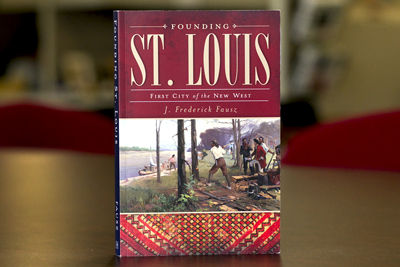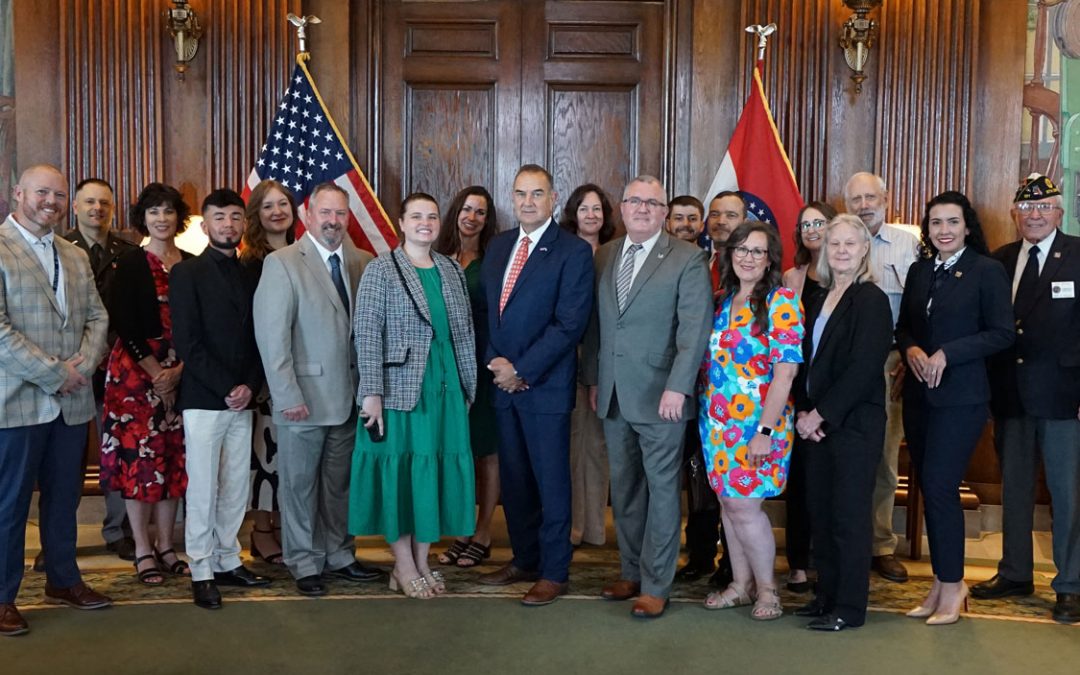
"Founding St. Louis: First City of the New West" was written by J. Frederick Fausz, associate professor of history at UMSL.
The animal wealth of the western “wilderness” provided by talented “savages” encouraged French Americans from Illinois, Canada and Louisiana to found a cosmopolitan center of international commerce that was a model of multicultural harmony. In his new book, “Founding St. Louis: First City of the New West,” J. Frederick Fausz, associate professor of history at the University of Missouri–St. Louis, explored the 250-year-old mystery of why and how French St. Louis was founded.
“Founding St. Louis” offers a fresh interpretation of St. Louis from 1764 to 1804. In it, Faust explains how Pierre Laclede, the early Chouteaus, Saint Ange de Bellerive and the Osage Indians established a “gateway” to an enlightened, alternative frontier of peace and prosperity before Lewis and Clark were even born. The book includes never-before-published details on the relevance of Laclede’s life in the Pyrenees mountains in southwest Europe and his collaboration with the last French royal governors in New Orleans to promote a trade war with the British.
“’Founding St. Louis’ digs deep to offer the most impressive history yet written of the city’s French founders, of the old world they came from and the new one they created,” said Stephen Aron, professor of history at the University of California, Los Angeles and author of “American Confluence: The Missouri Frontier from Borderland to Border State. “(It is) an absolutely essential book for historians of St. Louis, of colonial Louisiana, of the Early Modern Atlantic World and of American history.”
Enriched by eyewitness accounts and enhanced by 50 illustrations (20 in color), “Founding St. Louis” will appeal to historians, genealogists and general readers. They will appreciate the well-researched perspectives in this engaging story about a novel French West long ignored in American history.
“Informed by the latest scholarship, Fausz suggests that St. Louis, like Shannon Dawdy’s New Orleans, was also an example of ‘rogue colonialism,’” said Jay Gitlin, lecturer in history at Yale University in New Haven, Conn., and author of “The Bourgeois Frontier: French Towns, French Traders and the American Expansion.” “The details will fascinate, and every reader will learn something new, even those well-versed in the city’s history. The story of the founding of St. Louis now has the solid foundation it has deserved.”
Fausz was the first dean of the Pierre Laclede Honors College at UMSL. He earned his doctorate in American history from the College of William and Mary in Williamsburg, Va., and was a fellow of the D’Arcy McNickle Center for the History of the American Indian at the Newberry Library in Chicago.
Three of Fausz’s many publications have won “best of the year” awards from historical societies in Missouri, Virginia and Maryland, and in May 2007, Time magazine cited his research on early Jamestown. Committed to sharing historical knowledge with the general public, he was a consultant on Kevin Costner’s eight-hour Indian documentary, “500 Nations.”
Fausz has exhibited his extensive collection of fur trade artifacts in major museums and at other sites in seven Midwestern states. In 2006, he was the lead organizer and program chair for the Ninth North American Fur Trade Conference in St. Louis and received the 2007 Missouri Governor’s Award in the Humanities for Enhancing Community Heritage.
“Founding St. Louis: First City of the New West” was released by The History Press. It can be purchased for $21.99 at amazon.com.
More information:
umsl.edu/~umslhistory/faculty/fausz.html
historypress.net














